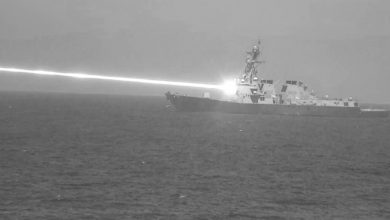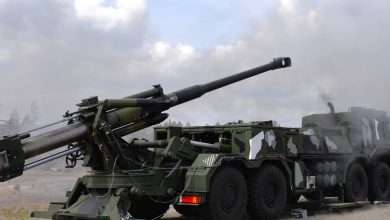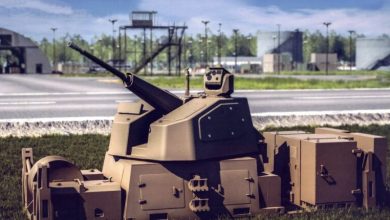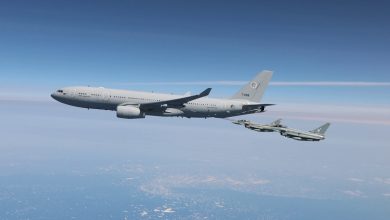Analysis: Europe’s Next War Could Start in Kosovo

There are notable parallels between the situation in the Balkan country and the ongoing conflict in Ukraine. Western policymakers ought to pay attention.
The recent flare-up in northern Kosovo between NATO peacekeeping troops and ethnic Serbians has reminded the world that while the brutal war in Ukraine may be the greatest threat to European stability at the moment, it is by no means the only one.
On May 29, Serb protestors clashed with NATO troops after the authorities in Kosovo attempted to escort newly elected mayors into government administration buildings in the Serb-dominated northern municipalities. The ethnically Albanian mayors were elected in November 2022 with a meager voter turnout of 3.5 percent, as ethnic Serbians in the region boycotted the elections as part of their ongoing struggle with Kosovo’s government. This came on the heels of the July 2022 decision in Pristina, the country’s capital, to force Serbs in the region to adopt Kosovo license plates rather than Serbian ones.
Although the matter may seem trivial to outside observers, the move was interpreted by many as simply the latest example of Pristina’s overreach. Though Kosovo officially proclaimed its independence in 2008, it was a contentious move that many countries do not recognize. Although the four Serb-majority northern municipalities compose a relatively small portion of the country, with ethnic Serbs composing only 6 percent of the country’s total population, a 2013 EU-brokered deal was meant to allow for a degree of self-rule in the region. The Serbs living in Kosovo have grown increasingly discouraged by Pristina’s failure to implement the terms of the agreement, a fact that both the United States and the EU have acknowledged.
Back in July, protestors set up a number of roadblocks in northern Kosovo following the initial move to alter licensing and registration. Serbian president Aleksandar Vučić described the gravity of the situation by stating that “we [authorities in Belgrade and Serbs in northern Kosovo] have never been in a more difficult situation”—quite a statement considering the region’s notorious volatility.
Nonetheless, Pristina decided to move forward with the mayoral elections despite calls from both Washington and Brussels to delay the vote. There was further cause for consternation when the Kosovar government then went on to ignore Western pressure to have the mayors conduct government operations from a remote location in order to avoid a potential physical clash with demonstrators obstructing access to municipality centers. This is exactly what happened when Pristina decided to use Kosovo law enforcement to forcibly escort the “elected” representatives into official administrative buildings being blocked by Serb protestors. The subsequent attempt by NATO peacekeeping forces to manage the turmoil resulted in dozens of injuries, including eleven Italians and nineteen Hungarians who were a part of the peacekeeping contingent. Over fifty Serb protestors were additionally injured. Belgrade responded to the incident by raising the combat readiness of Serbia’s armed forces to its highest level.
Both the United States and the European Union were swift in their condemnation of the Kosovo government. U.S. ambassador Jeff Hovenier tweeted out his disapproval of Pristina’s actions, stating that “today’s violent measures should be immediately halted.” On June 2, Secretary of State Antony Blinken further laid the blame at the feet of the country’s leadership and its course of “escalating tensions in the north and increasing instability.” An EU-brokered agreement to hold new mayoral elections in the northern municipalities was subsequently reached at a meeting in Moldova attended by Vučić, Kosovo president Vjosa Osmani, and EU high representative for foreign affairs Josep Borrell. French president Emmanuel Macron and German chancellor Olaf Sholz were also present.
It remains to be seen whether the decision to conduct new elections will be enough to lower the tensions in the region. The present situation is a reminder that the United States, for better or worse, remains the ultimate arbiter in guaranteeing Kosovo’s independence and maintaining general stability in the region. This means that the authorities in Pristina must understand the necessity of playing to international audiences, especially those located in the halls of Washington. Prime Minister Albin Kurti has certainly acknowledged as much: the U.S. flag is often seen at his rallies, side by side with Kosovo’s national flag (as well as that of Albania).
Kurti has also attempted to defend his government’s actions by utilizing the current lexicon of U.S. domestic politics. He has continually equated the protestors in northern Kosovo to “right-wing extremist groups,” and took to Twitter to state that “in a democracy there is no place for fascist violence”—language eerily similar to U.S. president Joe Biden’s multiple references to political opposition that still support former president Donald Trump as “semi-fascists.” The protestors, according to Kurti, are “extremists and militias,” and do not represent “the people.” In the past, the prime minister notably feuded with Trump-appointed special envoy for Serbia and Kosovo Richard Grenell, and eagerly endorsed Biden for president in 2020.
For her part, Osmani has also recognized the importance of political narratives and curating the proper international image. She has presented her country as a besieged nation in a similar situation to that of Ukraine and its ongoing war with Russia. Meeting with Ukrainian president Volodymyr Zelenskyy on June 1 at the EU summit in Moldova, she later tweeted that “No one understands Ukraine’s pain, struggle and resilience better than the people of Kosovo.” She concluded with the statement that “nothing can stand in the way of a people’s will to be free.”
Outside the government administrative buildings in the northern Kosovo municipality of Zvecan, Serb protestors carried signs displaying a similar message: “We are not criminals, we just want freedom,” as well as “You will not drive us out of our homes.” In fact, the political dynamics of the situation in northern Kosovo are in many ways similar to that of eastern Ukraine. Much like Ukraine, Kosovo is a historically disputed territory that’s secession from its former arbiter of political control has not been accepted by a significant portion of the citizens in the country which it seceded from. Ethnic Serbs who found themselves in the newly independent Kosovo (exacerbated after its official independence in 2008) felt displaced from their rightful political home, much like some Russians in the Donbas felt in relation to Moscow, particularly after 2014.
It is no coincidence then that Kurti would claim that the Serb protestors in northern Kosovo are Moscow sympathizers. In an attempt to tie his own struggle to that of Kyiv against the destructive war waged by Vladimir Putin, Kurti also made specific reference to the fact that many protestors displayed the “Z of Russian aggression in Ukraine.” He would go on to state that “the pro-Russian elements in Serbia and the north of Kosovo want to destabilize everything that has been agreed so far.” Many Serbs in the region have been seen displaying their solidarity with Putin and Russia in general, ostensibly as a means for appealing to Moscow for support in the current situation.
Regarding the Kremlin’s stance, Russian foreign minister Sergei Lavrov commented on the situation in Kosovo to Russian state media, saying that “a huge explosion is being prepared in the center of Europe, in the place where, in 1999, NATO attacked Yugoslavia, violating every imaginable (international) principle.”
This is an analysis shared by many ethnic Serbs. The potential for a wider conflagration is certainly a real possibility. However, the relative strength of the United States and the broader transatlantic alliance which it controls is a powerful incentive for Serbia to remain within the bounds of Western-dictated behavior.
The war in Ukraine may very well end up as a type of frozen conflict similar to the situation between Kosovo and Serbia. And much like the latter situation, the United States will almost certainly end up as the ultimate guarantor of the Ukrainian situation as it is for Kosovo. Policymakers should keep this fact in mind as they try to reach a settlement that accounts for the much more significant security implications surrounding a direct military challenge with Russia.





